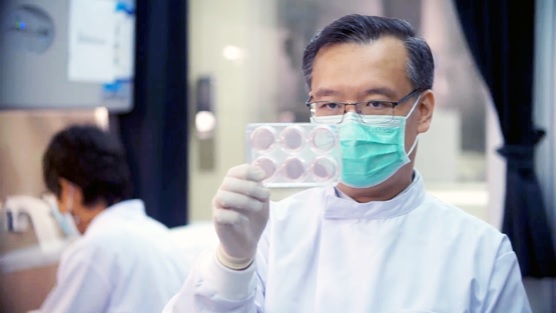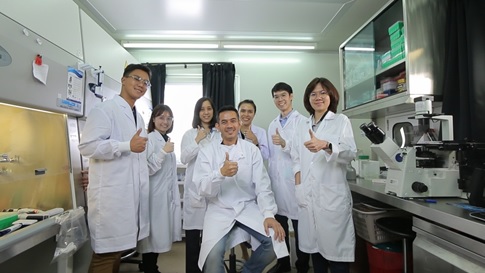Since the outbreak of COVID-19 in 2019, attempts have been made around the world to develop drugs and vaccines against the disease. At NSTDA, the researchers at BIOTEC employed genetic engineering technology to develop COVID-19 vaccine prototypes.

Dr. Anan Jongkaewwattana, Director of Veterinary Health Innovation and Management Research Group, recently provided an update on the COVID-19 vaccine development. His team started the COVID-19 vaccine development research in January 2020. The team constructed the gene for SARS-CoV-2 spike protein containing a receptor-binding domain (RBD) that allows it to gain entry into cells and lead to infection. This spike protein is an antigen that triggers the immune system to produce the antibodies blocking the entry of SARS-CoV-2 virus, the cause of COVID-19. Based on the constructed gene, Dr. Anan and his team employed three different vaccine technologies, resulting in three COVID-19 vaccine candidates: 1) influenza A virus-based vaccine, 2) virus-like particle vaccine and 3) adenovirus vector-based vaccine. All three candidates have been tested on laboratory mice for immunogenicity.

As COVID-19 vaccines currently available for injection into the muscle, BIOTEC research team was also interested to explore the intranasal administration. Studies have been conducted on lab mice to evaluate the immunogenicity of two candidates - adenovirus-based and influenza A-based vaccines – administered intramuscularly and intranasally.
For the adenovirus-based vaccine, not only did the mice administered vaccine intranasally not fall sick, the subjects gained more weight than mice receiving vaccine intramuscularly. The safety test result was also promising. Nasal adenovirus-based vaccine used in the study was manufactured in a GMP-vaccine production facility under the collaboration with KinGen BioTech.
For influenza A-based vaccine, test results show that both intranasal and intramuscular administrations provide high levels immunity in the forms of antibody and T cell in lab mice. Safety evaluation of the vaccine is being planned.
Once the evaluation in animal model is complete, the team will apply for human trial to be conducted in collaboration with Chulabhorn Royal Academy. If all proceeds according to plan, the phase I clinical trial should be expected later this year and phase II around March 2022.

